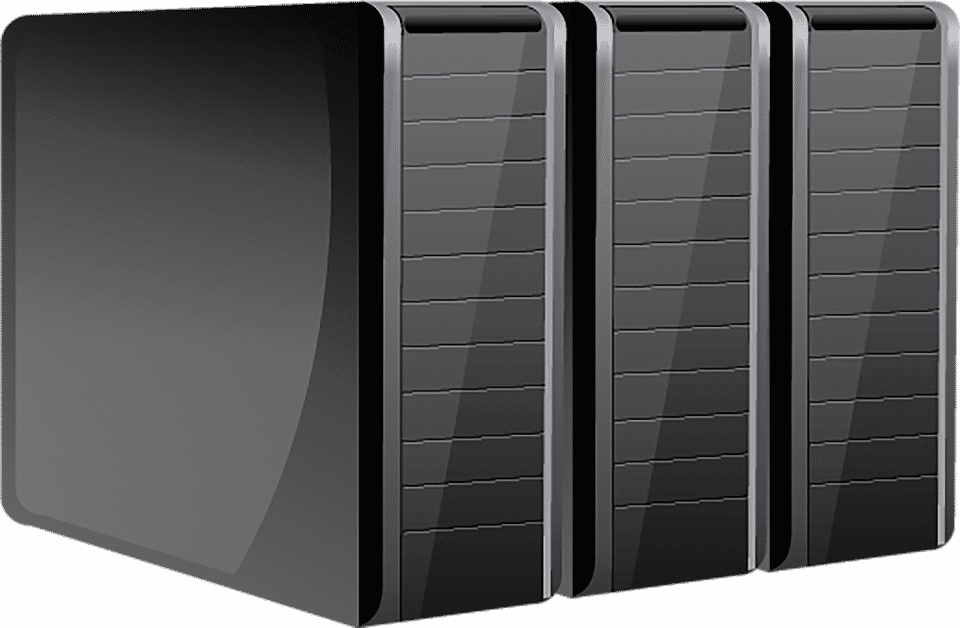The Knowledge Centre

Does my small business really need a server?
14th August 2018
As you grow your small business, needs and requirements change. One important decision you will have to make is to ask yourself “Do I really need a server?”.
This decision is usually driven by needs created by taking on new members of staff who need to collaborate on documents and other files, and be able to quickly find information.
A networked option is the traditional choice to resolve these challenges. A server allows you to share files in a secure fashion between your team, and quickly find information when you need to. However, implementing a server comes at a cost – there is the server hardware, software, licensing, plus a new need to backup data and keep software current and secure.
These additional server driven costs are why some small businesses are looking for alternatives.
Alternatives such as the Cloud
Cloud computing allows you to benefit from a server-based infrastructure without having to buy a physical server. You effectively rent the hardware and software from a provider. They then, for their monthly fee, ensures that your “server” is available at all times and is kept secure through regular updates. Furthermore, your data is also backed up for an additional level of security.
Given these benefits, many small businesses think that the Cloud is a great fit for them. And rightly so! But there are occasions when a server you own can be a better fit for your business.
Let’s take a look at some examples.
Your Industry prevents cloud hosting
In some industries where data is extremely sensitive it’s not allowed to be hosted in the cloud. Financial and legal sectors may encounter this issue especially where other countries could potentially access your data held of overseas cloud hosted servers.
You need Centralised user management
If you have a need to centrally manage all users, as well as have the ability to create users and reset passwords from one location, then a server is a good option.
You require centralised backup for files and user desktops / documents
Without a server, files are stored on user’s workstations or on a storage box. Most users will still store important files on their desktops and in their My Documents folders. Using a server, it’s possible to save all of those files to the server and back them up.
You want hot desking for users
If you want users to be able to hot desk by logging in with their own username and password then it is just the thing you need. Users can login to any PC and all of their usual files will be there ready to work on.
Sharing of application data
If you want to share access to an application such as Sage or QuickBooks to two or more PC’s then you need a server. Without one the programs will be slow and the PC will always need to be switched on. They are designed to run 24/7 and built to provide fast access to shared files.
More control over PC’s
- Want to prevent users installing their own unauthorised software?
- Control what desktop wall paper is used?
- Prevent users from using USB drives?
- Control what types of websites users can see?
All this and a lot more is possible, combined with other software solutions.
You want granular control over user access to files
If you want to more easily manage permissions on files and folders and even create groups of users who can access certain folders. Then a server solution makes this easy to setup and manage. Even automatically setup links to these folders on the PC without the end user having to do anything.
Summary
Servers can offer better management of users, PC’s and software within your network and can also help to improve security. They can involve a high level of investment so be sure to explore cloud solutions before diving straight in.
Want to find out more about how your business could benefit from using servers? Read our Cloud VS Server article for more information.
View More Articles
Other Articles
Take a look at our most recent articles
-
- Is there any alternative to ISO 27001 for my small business? January 22, 2019 Continue reading...
- Setup a Staff Rota Using Microsoft 365 February 25, 2019 Continue reading...
Can your business recover from Disaster?
Do you have a backup? is it sufficient? when did you last review it, or test it?
Download our free 25 point checklist to help give you peace of mind that you've got the best system in place for your business needs.
